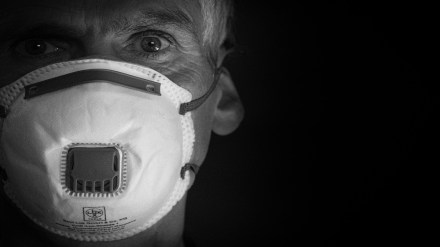HMPV in India: Five year after the first case of COVID-19 was reported, another respiratory illness has wreaked havoc in China. As the surge in the cases of Human metapneumovirus Virus (HMPV) continue in China, India reported three cases of the contagious diseases on Monday.
According to Cleveland Clinic, HMPV is a virus that usually causes symptoms similar to a cold. This virus is extremely common and it affects most people before they turn 5.
What is human metapneumovirus (HMPV)?
The Centers for Disease Control and Prevention (CDC) maintains that Human metapneumovirus (HMPV) can cause upper and lower respiratory disease in people of all ages, especially among young children, older adults, and people with weakened immune systems.
The virus was first discovered in 2001 and it belongs to the Pneumoviridae family along with respiratory syncytial virus (RSV).
HMPV Outbreak: Here are the 10 latest updates on the virus from around the world
- As cases of HMPV continue to rise, China steps up monitoring amid new virus outbreak.
- The Delhi government on Monday directed all the hospitals in the Capital to remain fully prepared to manage a potential surge in respiratory illnesses.
- In Bengaluru, a three-month-old baby, who has been discharged, and an eight-month-old, who is recovering at a hospital, were the two cases.
- A two-month-old was also found infected with HMPV in Gujarat’s Ahmedabad. The affected infants and their families have no recent travel history, ruling out exposure from other regions or countries.
- The State Department of Health and Family Welfare in Gujarat issued advisory and urged the people of the state to follow the “Do’s and Don’ts” to prevent respiratory infections.
- Maharashtra has intensified surveillance for respiratory disease cases amid rise in HMPV cases. The health department has assured the public that there is no need for alarm regarding the HMPV cases reported in China. The state government has urged the public to follow do’s and don’t.
- As per the Union Health Ministry, the situation in China is not unusual given the ongoing flu season. The Union health ministry said it is monitoring the situation through all available surveillance channels. The Indian Council of Medical Research (IMCR) will continue to track trends in HMPV circulation throughout the year.
- Reports and social media posts suggest that the virus is spreading rapidly in China, with some claiming that hospitals and crematories are overwhelmed.
- The top medical body – the Indian Council of Medical Research or ICMR – on Monday alerted that the virus is already in “circulation” globally, including India.
- Serological studies have shown that it has existed in humans for more than 60 years and is distributed all over the world.
What are the symptoms of human metapneumovirus (HMPV) infection?
Symptoms commonly associated with HMPV include:
- cough,
- fever,
- nasal congestion,
- and shortness of breath.
“Clinical symptoms of HMPV infection may progress to bronchitis or pneumonia and are similar to other viruses that cause upper and lower respiratory infections. The estimated incubation period is 3 to 6 days, and the median duration of illness can vary depending upon severity but is similar to other respiratory infections caused by viruses,” the CDC revealed.
How to human metapneumovirus (HMPV) spreads?
According to the CDC, HMPV is most likely spread from an infected person to others through:
- secretions from coughing and sneezing
- close personal contact, such as touching or shaking hands
- touching objects or surfaces that have the viruses on them then touching the mouth, nose, or eyes
It is noteworthy that HMPV circulates in distinct annual seasons in the United States. HMPV circulation begins in winter and lasts until or through spring, it added.
How to prevent human metapneumovirus (HMPV) infection?
According to the CDC, you can prevent the spread of HMPV and other respiratory viruses by following these steps:
- Wash their hands often with soap and water for at least 20 seconds (see CDC’s Clean Hands Save Lives!).
- Avoid touching their eyes, nose, or mouth with unwashed hands.
- Avoid close contact with people who are sick.
Patients who have cold-like symptoms should:
- cover their mouth and nose when coughing and sneezing
- wash their hands frequently and correctly (with soap and water for at least 20 seconds)
- avoid sharing their cups and eating utensils with others
- refrain from kissing others
- stay at home when they are sick
How human metapneumovirus (HMPV) infection is treated?
Currently, there is no specific antiviral therapy to treat HMPV and no vaccine to prevent HMPV. Symptomatic treatment is the only approach at the moment.
